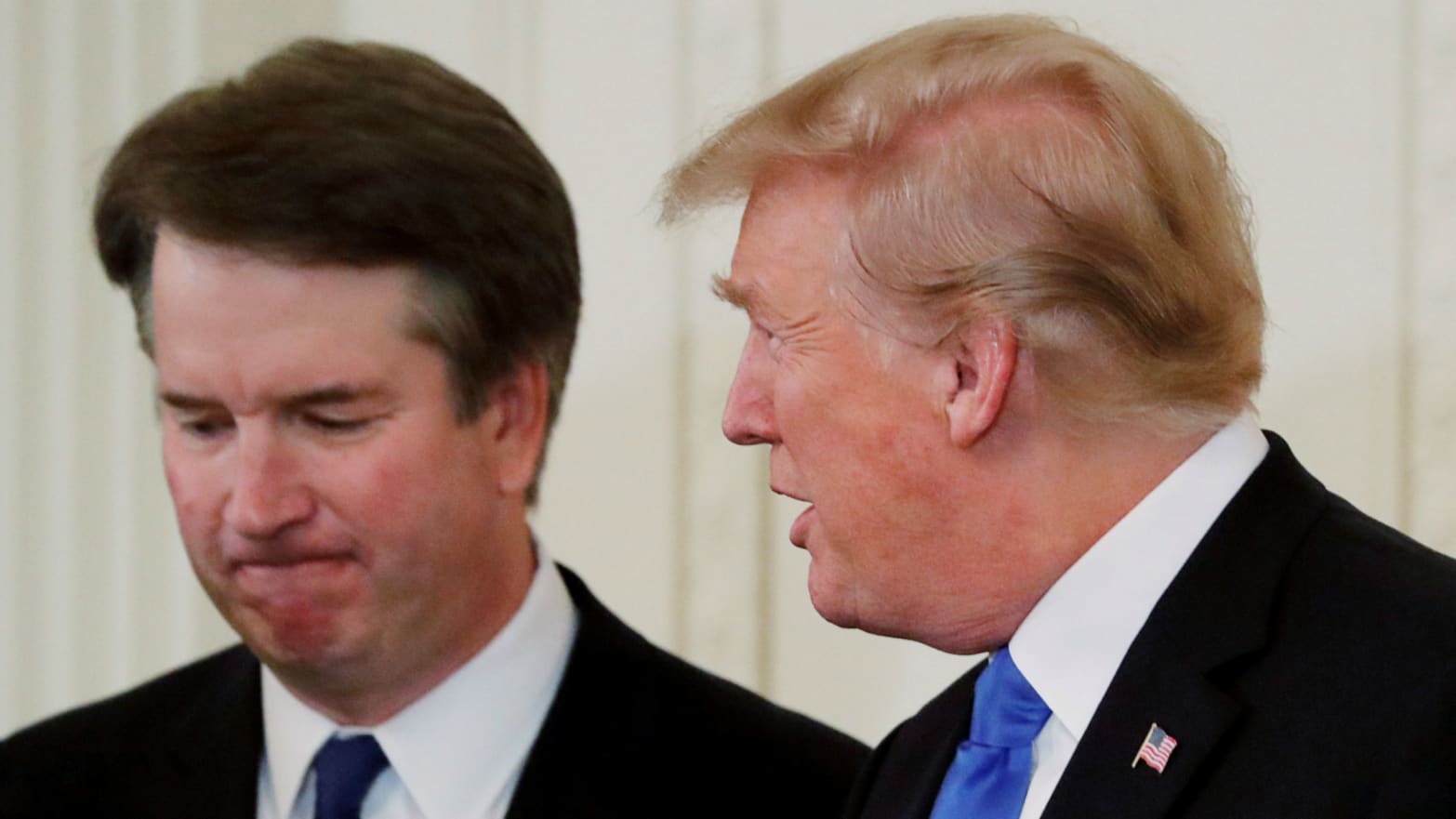The Kremlin’s support of Donald Trump’s objectives, devoid of traditional U.S. values, has spilled out into the issues typically outside of Russia’s purview, such as Judge Brett Kavanaugh's nomination to the Supreme Court.
Trump’s disregard for human rights and values is balm to the Kremlin’s sanction-wounded heart, which is why the Russians were quick to jump on the Kavanaugh wagon.
Russian state media is supporting Trump’s Kavanaugh nomination both in its domestic publications, as well as those aimed at the English-speaking audiences.
Hamilton 68, an organization which tries to track Russian influence operations on Twitter, also recorded extensive activity pertaining to the Kavanaugh nomination.
When Trump complains: “It’s a very scary time for young men in America,” but “women are doing great.” A Kremlin propagandist Dmitry Kiselyov commiserates on TV: “Guess what stands in Kavanaugh’s way? Certainly, the disease of malignant feminism… used to destroy promising careers and eliminate political opponents.”
The message that women’s rights are nothing more than the ploy of wicked feminists resonates with the Russian government. Vitaly Milonov, an ultra-conservative lawmaker from Putin’s United Russia party, openly argues on Russian state television that feminists aren’t even people, but mere “monkeys” and “witches.” He calls for feminists to be subjected to forced psychiatric treatment or imprisonment. “Lock her up” has a greatly expanded meaning in Russia.
Kavanaugh says: “The Swetnick thing is a joke, that's a farce.” Kiselyov echoes: “The case against Brett Kavanaugh sounds like a joke.”
All this is part of a broader picture in which the Kremlin continues to differentiate between Trump and the American government.
Russia’s Foreign Minister Sergey Lavrov recently exclaimed that the relations between the United States and Russia are “the worst in history.” At the same time, Lavrov emphasized that the relationship between the President of the United States Donald Trump and Russian President Vladimir Putin is “very constructive” and “positive.” Pro-Kremlin experts and political strategists on Russian state TV explain that their support of Trump is based on the convergence of interests.
Karen Shakhnazarov, a prominent film director and an influencer who makes regular appearances on Russian state TV, has explained that by destroying the European Union, imposing tariffs upon China and hastening “the destruction of the American empire” Trump is “lightening Russia’s load” and giving it “breathing space.”
Mikhail Remizov, President of the Russian think-tank, Institute for National Strategy, has said that the reasons for the Russians to support Trump’s election were not based on the desire to gain a friend in the White House. He argued that the real motivation is twofold: Trump’s restructuring of America’s global financial agreements distracts the West from Russia, thereby allowing it more room to maneuver. The second reason is that Trump is “forming the new global ideology” with respect to protectionist economic policies, restrictions on immigration and fostering skepticism towards global jurisdictions, such as the International Criminal Court, “all of which is exactly what Russia wants.”
Russian Political Scientist Sergey Mikheev added that Trump does not care about values, concerning himself “only with money and interests.” Tatyana Parkhalina (President of the Association for Euro-Atlantic Cooperation) cautioned the pro-Kremlin talking heads not to confuse Trump’s values (or lack thereof) with those of the United States. “Trump is not America – thankfully. They are not one in the same.”
It’s worth keeping that context in mind when Trump calls Democrats the “party of crime,” and blames them for “sick attacks against Kavanaugh.” RT excitedly chimes in: “Tired of the political divide in America? Don’t worry, it’s going to get much worse.”
No doubt the Kremlin is willing to do its part to ensure just that.

